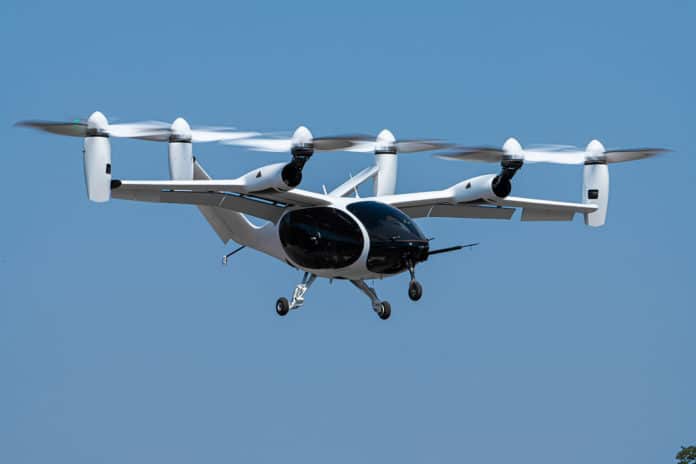A California-based aerospace company, Joby Aviation, has received a Part 135 Air Carrier Certificate from the Federal Aviation Administration (FAA), allowing Joby to begin on-demand commercial air taxi operations.
The Company received the certification ahead of schedule, with Joby initially targeting the second half of 2022 for its receipt. The Part 135 Air Carrier Certificate is one of three FAA approvals required for Joby to operate its revolutionary electric vertical take-off and landing (eVTOL) aircraft as an air taxi service in cities and communities across the United States, alongside a Type Certificate and a Production Certificate. The Type certificate means the aircraft meets all the FAA’s design and safety standards, while the production certificate is the approval to begin manufacturing the aircraft.
“The procedures we’ve prepared lay a foundation for our future eVTOL operations. Over the coming months, we will use our Part 135 certificate to exercise the operations and customer technology platforms that will underpin our multi-modal ridesharing service while also refining our procedures to ensure seamless journeys for our customers,” said Bonny Simi, Head of Air Operations and People at Joby.
Joby’s all-electric aircraft has a maximum range of 150 miles (241 km) on a single and can transport a pilot and four passengers at speeds of up to 200 mph (322 km/h). It is 100 times quieter than a conventional aircraft and is designed to reduce urban congestion and accelerate the shift to sustainable modes of transit. Joby aims to have a full-scale air taxi service in operation by 2024.
Joby recently announced the result of acoustic testing with NASA, which confirmed the aircraft hit the Company’s target for low noise emissions during take-off and landing as well as overhead flight.
Once Joby receives a type certificate for its eVTOL aircraft, the Company will complete the FAA review process to add the new aircraft type to its existing air carrier certificate. Pilots for the Company’s future aerial ridesharing service, expected to launch in 2024, will have the benefit of flying an environmentally friendly aircraft on a reliable work schedule, ending each shift in their home city.
